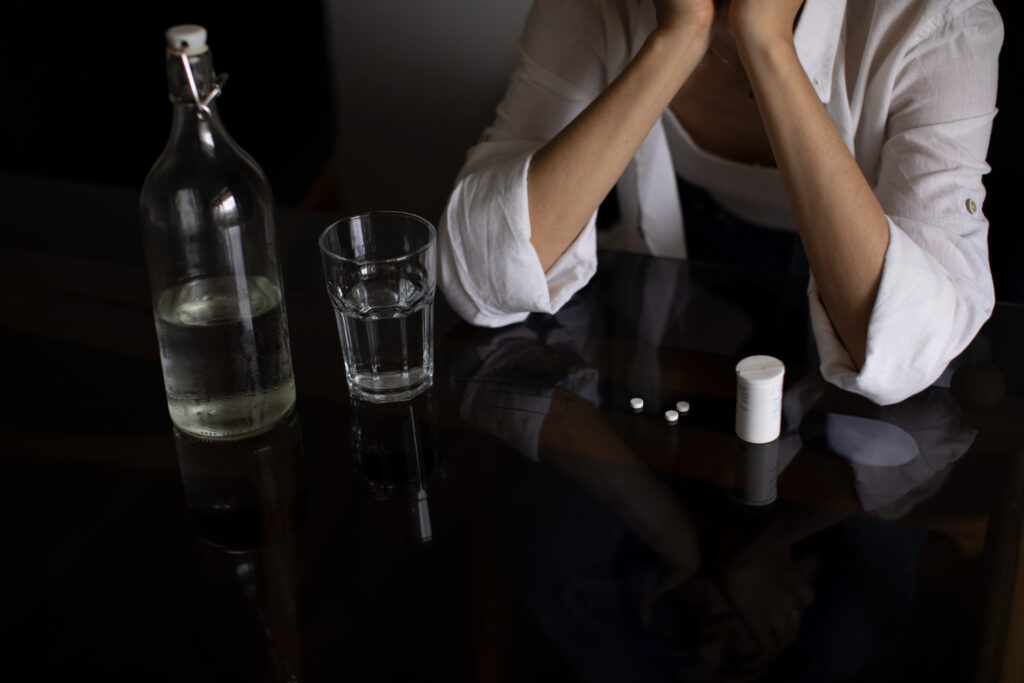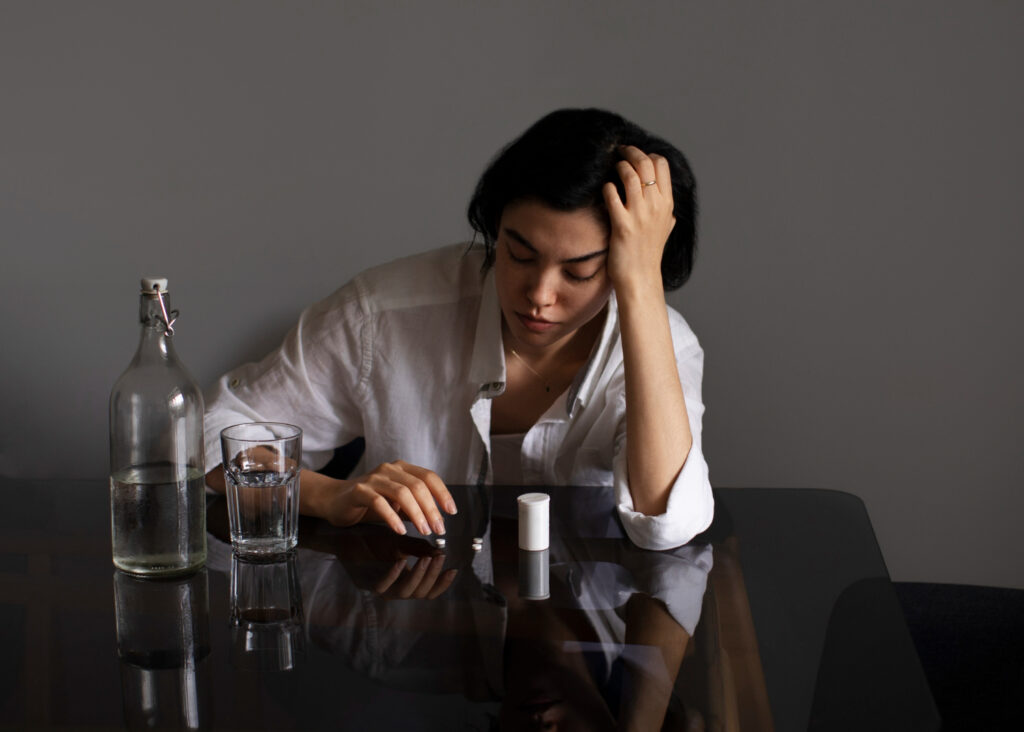
A pounding headache, nausea, and fatigue are well-known signs of a hangover. Recently, researchers have introduced the term “hangxiety” to describe the anxiety and irritability that often accompany a hangover the day after drinking. This phenomenon can be more pronounced in individuals who already experience anxiety or depression.
What Is Hangxiety?
Hangxiety, a blend of “hangover” and “anxiety,” refers to the feelings of embarrassment, regret, and shame that might follow a night of drinking. These emotional symptoms typically come alongside classic hangover signs like headaches, fatigue, and nausea.
Research indicates that hangxiety exacerbates anxiety and depression, manifesting in various symptoms:
- Body aches and pains
- Fatigue
- Dizziness
- Feelings of helplessness or hopelessness
- Guilt
- Irritability
- Loss of interest in usual activities
- Negative self-perception
- Social withdrawal
- Worrisome thoughts
Why Do You Feel Anxious After Drinking Alcohol?
Using alcohol to cope can worsen hangover symptoms, particularly for those with existing anxiety or depression. Studies have shown that higher levels of anxiety, depression, and stress are linked to more severe hangovers.
Alcohol affects the brain by interacting with gamma-aminobutyric acid (GABA) receptors, producing a calming effect initially. However, as the night progresses and especially after sleep, alcohol boosts glutamate receptors, which are excitatory. This increase in glutamate can lead to waking up in the middle of the night and experiencing heightened anxiety the next day.
The Cycle of Alcohol and Anxiety
There is a significant overlap between alcohol use disorder (AUD) and anxiety. Using alcohol to alleviate anxiety can create a vicious cycle. Initially, alcohol may temporarily relieve anxiety symptoms, but over time, dependence can lead to withdrawal symptoms, escalating both alcohol use and anxiety

Alcohol also increases cortisol, a stress hormone, which can impair emotional regulation the next day. A 2021 study noted that a negative mindset can hinder effective coping strategies.
How To Get Rid of Hangxiety
Addressing physical hangover symptoms can help alleviate hangxiety. Common hangover treatments include:
- Rehydration: Alcohol dehydrates the body. Replenish lost fluids and electrolytes with sports drinks, bouillon soup, fruit juice, or honey.
- Rest: Ensure you get plenty of sleep to restore energy.
- Pain Relievers: Avoid Tylenol (acetaminophen) due to potential liver damage risks with alcohol. Opt for Advil (ibuprofen) or aspirin to relieve headaches.
Practicing self-compassion is crucial if you feel embarrassment, guilt, or regret. Research shows that self-kindness can reduce anxiety and depression symptoms. Relaxation techniques such as deep breathing, meditation, yoga, and tai chi can also help by lowering blood pressure and heart rate.
How To Prevent Hangxiety
Consider avoiding alcohol if it exacerbates anxiety or depression. If you choose to drink, limit yourself to one or two drinks per night. Alternate alcoholic beverages with water or club soda to stay hydrated and reduce excessive drinking. Opt for lighter drinks like wine spritzers or light beers, which generally have lower alcohol content.
When To Contact a Healthcare Provider
If hangxiety interferes with daily activities, seek support from a healthcare provider. Frequent hangxiety might warrant an assessment for anxiety and depression. Providers might suggest limiting or avoiding alcohol if it significantly impacts your mental health.
Contact a healthcare provider if you suspect you have AUD, characterized by:
- Drinking more than intended
- Alcohol use interfering with responsibilities
- Feeling the need to drink to relieve anxiety or depression
- Inability to cut down or stop drinking
- Spending excessive time drinking
- Experiencing withdrawal symptoms (e.g., irritability, shakiness, sleep disturbances)
Conclusion
Understanding hangxiety and its causes can help in managing and preventing it. By being mindful of your alcohol consumption, practicing self-care, and seeking professional help when necessary, you can mitigate the impact of hangxiety on your life
A Quick review
Hangxiety refers to the combination of hangover and anxiety symptoms that can follow a night of drinking. It’s particularly common in people with pre-existing anxiety or depression. Managing hangxiety involves staying hydrated, getting plenty of rest, and practicing relaxation techniques. Avoiding alcohol or drinking in moderation can help prevent it. If hangxiety significantly affects your life, consider seeking medical advice.











